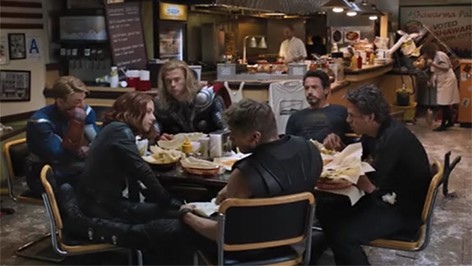As 2012 comes to an end, it’s time to take a quick look at the most popular articles of the year. You can find out what each of the categories mean over here.
The top editorials of 2012
#6 – The Cost Of A Supervillain Lair

Centives helping potential evil masterminds understand their financial needs will be a constant theme throughout this list. In this article we found that if we ever suspect an evil overlord is behind the miseries of our world, then we can narrow the list of villains to just 35 people.
#5 – How Much Does The Batmobile Cost?

Batman has no superpowers or special capabilities. Yet he is still able to hold his own against the likes of Superman and Wonder Woman. How? We believe it has everything to do with the car. In the comics Batman keeps several spare ones as they have a general propensity to get destroyed. An in-depth analysis found that Batman’s taste for cars has become more refined over the years…and that his car preferences show why American automakers have struggled in recent times.
#4 – The Cost Of Being An Unbeatable Evil Overlord

We’re fairly certain that there will soon be a demand for consultants that help evil overlords more effectively do their jobs. When that time comes we’ll have that market cornered. Centives’ great insight was that being an unbeatable evil overlord involves some measures that could actually save you money. Overall protagonist-proofing your dastardly plans is surprisingly affordable.
#3 – How Much Does It Cost To Be Batman?

Experts say that the reason why people like us are so obsessed with Batman is because it helps us deal with our insecurities. That sounds…about right. In sum it’ll cost $2.8 million to strike terror into the hearts of our enemies.
#2 – Forrest Gump’s Running Route

An important part of the Forrest Gump movie depicts the titular character running across the United States observing its beauty. Centives was able to trace his running route to figure out what path Gump took in his run across the United States.
#1 – How Much Would It Cost To Build The Death Star?

We must admit, the fact that our most popular article in 2012 was about the cost of building a weapon that can decimate entire planets kind of makes us terrified of our readers. We can only hope that if any of you should use our article as a guide, that you take mercy on us, and perhaps even bring us on board. We can help to sort out the logistics of things.
The top bulletins of 2012
#6 – Emma Watson: The Most Dangerous Celebrity On Earth

It’s ironic because we think a fair amount of people found this article while searching for “Emma Watson”. The article was about how putting the term “Emma Watson” into a search engine was fairly dangerous.
#5 – Perfectionism In Japan

Recession has meant that Japanese culture is beginning to shine through. And it turns out that Japanese culture involves paying crazy attention to detail.
#4 – Bizarre Fast Food Locations Around The World

Were you aware that you can now find a McDonald’s at Prague’s museum of communism? And other bizarre locations where you can find fast food.
#3 – Chess Introduces A Cleavage Rule

Sigh. We’d like to believe that this was popular because of the ‘chess’ part of the title.
#2 – Myths About Creativity

For better or for worse, creativity isn’t something you’re born with. It’s something you have to develop. Also, it’s important to criticize bad ideas.
#1 – Avengers Assemble…at a Shawarma Joint?

It’s only fitting that a record-breaking movie would also break records here at Centives. One small mention in the movie made the life of Shawarma joints across the United States.
The top snip of 2012
Snips…too short to be editorials…too interesting to not publish. Here’s the most popular one this year:
How Much Is The Mockingjay Pin Worth?

Katniss’ pin is an iconic symbol in the world of The Hunger Games. Centives figured out how much it was worth.
Have a very happy new year everybody! This website runs entirely on your viewership and we always appreciate messages and feedback from readers. You can always reach us at Voice@Centives.net. Best wishes for 2013.






























Join the Discussion! (No Signup Required)